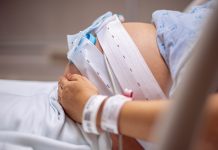Men who have taken father’s parental leave experience a significantly decreased likelihood of being hospitalised as a result of alcohol consumption.
A study conducted by researchers at the Department of Public Health Sciences at Stockholm University, as published in the journal Addiction, reveals that men who have taken parental leave experience a noteworthy decrease in the likelihood of being hospitalised due to alcohol-related issues.
Parental leave policy
The study’s primary objective was to evaluate the impact of fathers taking parental leave on alcohol-related health problems and mortality. To investigate this, the researchers examined the consequences of Sweden’s 1995 parental leave policy, which aimed to promote fathers’ utilisation of parental leave. This policy reserved 30 days of leave exclusively for fathers, leading to a notable increase in the percentage of fathers who took parental leave, rising from 43 to 75 per cent.
Helena Honkaniemi, a researcher at the Department of Public Health Sciences at Stockholm University, commented on their significant findings despite the seriousness of the outcomes under investigation. She noted that while hospitalisations related to alcohol were relatively rare, the study revealed a remarkable 34% reduction in hospitalisations among fathers during the two years following the policy’s implementation.
Father’s parental leave and hospitalisation due to alcohol
Moreover, smaller hospitalisation decreases persisted up to 8 and 18 years after childbirth.
The most substantial changes were observed in hospitalisations for alcohol intoxication and alcohol-related mental and behavioural disorders. Further analyses that examined the actual shift in parental leave usage before and after the policy change suggested that these health improvements could be attributed to the increased utilisation of parental leave by fathers rather than other underlying factors or trends.
There were no observable alterations in alcohol-related mortality. Associate Professor Sol Juárez, a co-author of the study, believes that these research findings could offer valuable insights for policymakers.
“Policymakers should consider that fathers’ parental leave not only promotes more gender-equal participation in childcare, but can also reduce alcohol-related harms”, Juárez says.
Parental leave policies can have various positive effects, including:
- Increased bonding with the child: Spending more time with a newborn and being actively involved in childcare can create a stronger emotional connection between fathers and their children.
- Reduced work-related stress: Parental leave allows fathers to step away from their work responsibilities temporarily.
- Supportive environment: Being on parental leave often means having a supportive partner or family members around to share childcare duties.
- Increased awareness of health and responsibilities: Parenthood often comes with a heightened sense of responsibility for one’s health and well-being and that of their family.
Parental leave may reduce the risk of hospitalisation due to alcohol consumption for some men, but it may not have the same effect for everyone. Individual factors such as personal habits, social support, and pre-existing risk factors can also play a significant role in alcohol-related health outcomes.











